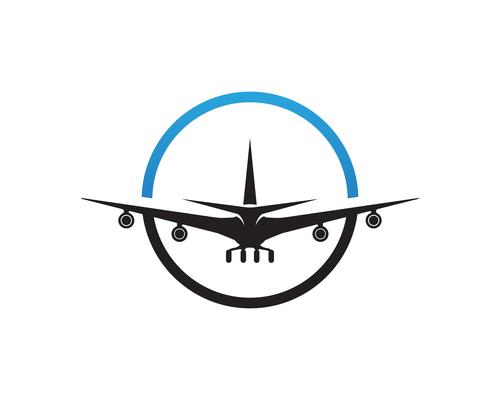In a dramatic shift for higher education in Australia, the cost of an arts degree is set to surpass $50,000 for the first time. This steep increase is set to place Australian university fees on par with those in the UK and the United States. As students grapple with these rising costs, many face the daunting prospect of carrying significant debt for decades, or even for their entire lives. This comprehensive guide explores the factors driving these changes, the broader impact on students, and potential future scenarios. Australia $50000 Arts
The Evolution of Arts Degree Costs in Australia
Not so long ago, pursuing an arts degree in Australia was a relatively manageable financial commitment. Students could expect to pay off their loans within a decade, provided they found stable employment after graduation. However, the landscape has shifted dramatically. Today, the cost of an arts degree is climbing to unprecedented heights, and experts warn that many students may never fully repay their debts. Australia $50000 Arts

The $50,000 Milestone: What’s Driving the Increase?
Starting in 2025, students will see their annual contributions for a range of degrees, including those in society and culture, communications, law, and economics, rise to $16,992. This figure represents a $650 increase from the previous year, driven by indexation. Moreover, it marks a staggering $10,000 increase for humanities courses compared to 2020, before the introduction of the Jobs Ready Graduates (JRG) scheme. Australia $50000 Arts
The JRG scheme, introduced by the Morrison government, was a significant policy shift. It reduced the overall government contribution to degrees from 58% to 52%, shifting more of the financial burden onto students, who now contribute 48% of the cost. Additionally, the scheme increased fees for some courses, including humanities, to fund fee cuts in other areas and to create 39,000 extra university places by 2023.
Criticism of the JRG Scheme
The JRG scheme has been widely criticized by various stakeholders in the education sector. The Group of Eight, Universities Australia, student bodies, and academics have all voiced their concerns. The University Accord interim report described the scheme as a failure and called for a redesign to prevent long-term damage to Australian higher education. The final report, released earlier this year, emphasized the need for urgent remediation. Australia $50000 Arts
Before the 2022 federal election, Labor also criticized the JRG scheme. Tanya Plibersek, then the shadow education minister, denounced it as a “total fraud” that lacked support from those with common sense or a conscience. This criticism underscores the widespread discontent with the current higher education funding model.
A Global Perspective: Comparing Costs
To understand the impact of Australia’s rising fees, it’s helpful to compare them with international benchmarks. In Canada, undergraduate humanities courses cost approximately C$5,542 (around A$6,028) annually for domestic students. In the UK, all domestic courses are capped at £9,250 per year (about A$17,900). In the United States, university fees vary significantly, ranging from US$12,320 for public colleges to $50,000 annually at elite private institutions.
In contrast, several European countries, including Austria, Denmark, Finland, Greece, and Sweden, offer free education for some or all courses. This stark difference highlights the growing financial burden on Australian students compared to their international peers.
Student Perspectives: Personal Stories and Challenges
Harrison Brennan, president of the University of Sydney’s Student Representative Council, is currently pursuing a degree in politics and philosophy. With a debt of $33,000 already accumulated, Brennan expresses frustration over the rising costs. He feels that current policies are an attack on critical thinking and that students are being unfairly penalized. Many students share this sentiment, feeling that they are being cheated by a system that places an excessive financial burden on them.
Government Responses and Future Directions
In response to criticism, Education Minister Jason Clare has acknowledged the complexity of the issue. He has announced the establishment of an Australian Tertiary Education Commission, which will oversee reforms, including the setting of course fees. However, the commission is not expected to begin its work until mid-2025, with any potential changes not anticipated until 2027.
Andrew Norton, a professor of higher education policy at Australian National University, has pointed out the challenges posed by the JRG scheme. He describes it as a “booby trap” for future governments, requiring temporary fixes until the education commission is in place. Norton’s research suggests that arts graduates with median career earnings may never fully repay their debts under the current system, even with low indexation.
Norton advocates for revisiting the old system, which adjusted fees based on a person’s capacity to pay. However, significant changes may not occur until 2026 or 2027, leading to a new cycle of students accumulating unsustainable debt.
The Broader Impact: Debt and Opportunities
The rising costs and increasing student debt are having significant effects on students’ lives and future opportunities. Greens deputy leader and higher education spokesperson Mehreen Faruqi has criticized Labor’s unwillingness to reverse the fee hikes, arguing that they exacerbate the student debt crisis. Faruqi highlights that soaring debt is preventing students from entering the housing market, pursuing further studies, and starting families.
Many young people feel disillusioned, perceiving little difference between the policies of Labor and the Liberals regarding higher education. This frustration reflects a broader concern about the fairness and sustainability of the current system.
Potential Solutions and Reforms
As Australia grapples with these challenges, several potential solutions and reforms could address the issues of rising fees and student debt:

Revisiting the Fee Structure:
An equitable approach to setting fees based on students’ ability to pay could help alleviate some of the financial burdens. This might involve adjusting fees according to income potential or implementing a sliding scale based on career prospects.
Increasing Government Support:
Enhancing government contributions to higher education could help offset the costs borne by students. This would require a reassessment of funding priorities and a commitment to investing in accessible and affordable education.
Expanding Scholarships and Financial Aid:
Increasing the availability of scholarships and financial aid could provide additional support to students pursuing higher education. This could help reduce reliance on student loans and ease the financial pressure on families.
Strengthening Support Systems:
Improving support services for students, including financial counseling and career guidance, could help them navigate the challenges of rising costs and manage their debt more effectively.
Conclusion: Australia’s $50,000 arts degree represents a significant shift in the higher education landscape. The dramatic rise in costs reflects broader policy changes and trends that have increased the financial burden on students. As the debate continues, it is crucial for policymakers, educators, and students to work together to find solutions that ensure higher education remains accessible and equitable for all.
Disclaimer
The information provided in this blog post reflects data and insights available up to July 2024. Policies, fees, and regulations regarding higher education are subject to change, and new developments may have occurred since the publication of this article. The views and opinions expressed are intended for informational purposes only and do not constitute financial or educational advice. For the most current and personalized information regarding university fees, student debt, and educational policies, please consult relevant educational authorities, financial advisors, or legal experts.
Source: www.theguardian.com

Get Free Expert Advice: Are you ready to embark on your next adventure? Whether you’re seeking a work permit, tourist visa, or study opportunities in Canada or other countries, we’re here to help! Contact us today to learn how our expert services can simplify your journey and turn your dreams into reality. Reach out now and let’s start planning your future together!
- Canada Citizenship Requirements: Everything You Need to Know
- Australia Implements New Measures for Temporary Graduate Visa Holders
- Melbourne Ranks Fifth Best City for Students Worldwide
Also read:
- UK Study Visa Approved Without IELTS – Even After a 5-Year Study Gap!
- 10 Most Budget-Friendly Countries for Indian Students to Study Abroad
- Discover the Best Time to Visit Canada: A Complete Guide for Your Dream Adventure
- Navigating Post-Study Work Opportunities & Tuition Fees: A New Era for International Students in the UK, US, Canada, and Europe
- Exciting News: Malaysia Extends Visa-Free Entry for Indian Nationals Until 2026!
 Need expert Advise ?
Need expert Advise ?
